Fleurs du Mal Magazine


Or see the index
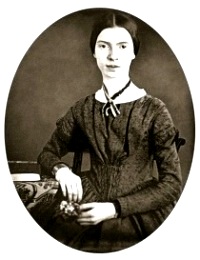
The Outlet
My river runs to thee:
Blue sea, wilt welcome me?
My river waits reply.
Oh sea, look graciously!
I’ll fetch thee brooks
From spotted nooks,—
Say, sea,
Take me!
Emily Dickinson
(1830-1886)
The Outlet, 1860
• fleursdumal.nl magazine
More in: Archive C-D, Dickinson, Emily

Les heures de la nuit – Poéme
Nous sommes des Heures heureuses
Par qui le Plaisir est conduit;
Quand les étoiles amoureuses
Percent le voile de la nuit,
Près de la beauté qui repose,
Œil entr’ouvert, bouche mi-close,
Vers un lit parfumé de rose,
Nous guidons César et l’Amour.
Et, là, nous demeurons sans trêve
Jusqu’au moment où, comme un rêve,
L’Aube naissante nous enlève
Sur le premier rayon du jour.
Gérard de Nerval
(1808 – 1855)
Les heures de la nuit – Poéme
• fleursdumal.nl magazine
More in: Archive M-N, Nerval, Gérard de, Nerval, Gérard de
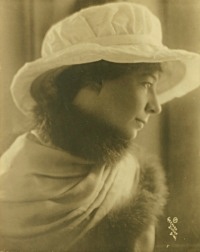
The Look
Strephon kissed me in the spring,
Robin in the fall,
But Colin only looked at me
And never kissed at all.
Strephon’s kiss was lost in jest,
Robin’s lost in play,
But the kiss in Colin’s eyes
Haunts me night and day.
Sara Teasdale
(1884-1933)
The Look
• fleursdumal.nl magazine
More in: Archive S-T, Archive S-T, Teasdale, Sara
“And I? May I say nothing, my lord?” With these words, Oscar Wilde’s courtroom trials came to a close. The lord in question, High Court justice Sir Alfred Wills, sent Wilde to the cells, sentenced to two years in prison with hard labor for the crime of “gross indecency” with other men.
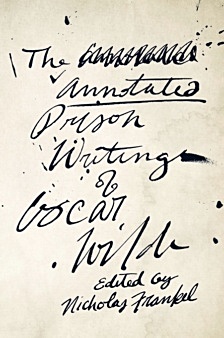 As cries of “shame” emanated from the gallery, the convicted aesthete was roundly silenced.
As cries of “shame” emanated from the gallery, the convicted aesthete was roundly silenced.
But he did not remain so. Behind bars and in the period immediately after his release, Wilde wrote two of his most powerful works—the long autobiographical letter De Profundis and an expansive best-selling poem, The Ballad of Reading Gaol.
In The Annotated Prison Writings of Oscar Wilde, Nicholas Frankel collects these and other prison writings, accompanied by historical illustrations and his rich facing-page annotations. As Frankel shows, Wilde experienced prison conditions designed to break even the toughest spirit, and yet his writings from this period display an imaginative and verbal brilliance left largely intact.
Wilde also remained politically steadfast, determined that his writings should inspire improvements to Victorian England’s grotesque regimes of punishment. But while his reformist impulse spoke to his moment, Wilde also wrote for eternity.
At once a savage indictment of the society that jailed him and a moving testimony to private sufferings, Wilde’s prison writings—illuminated by Frankel’s extensive notes—reveal a very different man from the famous dandy and aesthete who shocked and amused the English-speaking world.
Nicholas Frankel is Professor of English at Virginia Commonwealth University.
“Frankel provides a valuable service in comprehensively editing these works for a fresh generation of readers.” — Joseph Bristow, University of California, Los Angeles
The Annotated Prison Writings of Oscar Wilde
Oscar Wilde
Edited by Nicholas Frankel
Harvard University Press
Paperback
408 pages
Publication: May 2018
ISBN 9780674984387
€17.00
# more books
The Annotated Prison Writings of Oscar Wilde
-Clemency Petition to the Home Secretary, 2 July 1896
-De Profundis
-Letter to the Daily Chronicle, 27 May 1897
-The Ballad of Reading Gaol
-Letter to the Daily Chronicle, 23 March 1898
• fleursdumal.nl magazine
More in: - Book News, - Book Stories, Archive W-X, Archive W-X, Art & Literature News, CRIME & PUNISHMENT, REPRESSION OF WRITERS, JOURNALISTS & ARTISTS, Wilde, Oscar, Wilde, Oscar
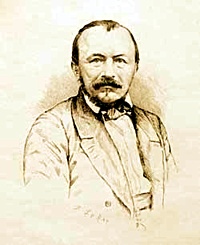
Pensée de Byron – Élégie
Par mon amour et ma constance,
J’avais cru fléchir ta rigueur,
Et le souffle de l’espérance
Avait pénétré dans mon coeur ;
Mais le temps, qu’en vain je prolonge,
M’a découvert la vérité,
L’espérance a fui comme un songe…
Et mon amour seul m’est resté!
Il est resté comme un abîme
Entre ma vie et le bonheur,
Comme un mal dont je suis victime,
Comme un poids jeté sur mon coeur!
Pour fuir le piège où je succombe,
Mes efforts seraient superflus;
Car l’homme a le pied dans la tombe,
Quand l’espoir ne le soutient plus.
J’aimais à réveiller la lyre,
Et souvent, plein de doux transports,
J’osais, ému par le délire,
En tirer de tendres accords.
Que de fois, en versant des larmes,
J’ai chanté tes divins attraits !
Mes accents étaient pleins de charmes,
Car c’est toi qui les inspirais.
Ce temps n’est plus, et le délire
Ne vient plus animer ma voix;
Je ne trouve point à ma lyre
Les sons qu’elle avait autrefois.
Dans le chagrin qui me dévore,
Je vois mes beaux jours s’envoler;
Si mon oeil étincelle encore,
C’est qu’une larme va couler!
Brisons la coupe de la vie;
Sa liqueur n’est que du poison;
Elle plaisait à ma folie,
Mais elle enivrait ma raison.
Trop longtemps épris d’un vain songe,
Gloire ! amour ! vous eûtes mon coeur:
O Gloire ! tu n’es qu’un mensonge;
Amour! tu n’es point le bonheur!
Gérard de Nerval
(1808 – 1855)
Pensée de Byron – Élégie
fleursdumal.nl magazine
More in: Archive M-N, Byron, Lord, Nerval, Gérard de
In Her Own Words: The Life and Poetry of Aelia Eudocia is the first full-length study to examine Eudocia’s writings as a unified whole and to situate them within their wider fifth-century literary, social, and religious contexts.
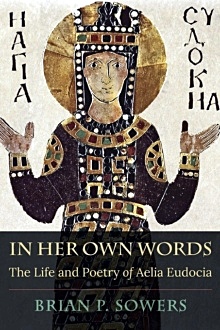 Responsible for over 3,000 lines of extant poetry, Eudocia is one of the best-preserved ancient female poets. Because she wrote in a literary mode frequently suppressed by proto-orthodox (male) leaders, much of her poetry does not survive, and what does survive remains understudied and underappreciated.
Responsible for over 3,000 lines of extant poetry, Eudocia is one of the best-preserved ancient female poets. Because she wrote in a literary mode frequently suppressed by proto-orthodox (male) leaders, much of her poetry does not survive, and what does survive remains understudied and underappreciated.
This book represents a detailed investigation into Eudocia’s works: her epigraphic poem in honor of the therapeutic bath at Hammat Gader, her Homeric cento—a poetic paraphrase of the Bible using lines from Homer—and her epic on the fictional magician-turned-Christian, Cyprian of Antioch.
Reading her poetry as a whole and in context, Eudocia emerges as an exceptional author representing three unique late-antique communities: poets interested in preserving and transforming classical literature; Christians whose religious views positioned them outside and against traditional power structures; and women who challenged social, religious, and literary boundaries.
Brian P. Sowers is Assistant Professor of Classics at Brooklyn College, City University of New York.
In Her Own Words
The Life and Poetry of Aelia Eudocia
Brian P. Sowers
Hellenic Studies Series 80
Harvard University Press
Paperback
ISBN 9780674987371
275 pages
€22.50
Publication: January 2019
# new books
Aelia Eudocia
Life and work – poetry
fleursdumal.nl magazine
More in: - Book News, Archive E-F, Archive E-F, Archive S-T, Art & Literature News, CLASSIC POETRY
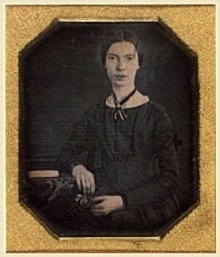
I’m Nobody! Who are you?
I’m Nobody! Who are you?
Are you – Nobody – too?
Then there’s a pair of us!
Don’t tell! they’d advertise – you know!
How dreary – to be – Somebody!
How public – like a Frog –
To tell one’s name – the livelong June –
To an admiring Bog!
Emily Dickinson
(1830-1886)
I’m Nobody! Who are you?
fleursdumal.nl magazine
More in: Archive C-D, Archive C-D, Dickinson, Emily
An indispensable anthology of brilliant hard-to-find writings by Poe on poetry, the imagination, humor, and the sublime which adds a new dimension to his stature as a speculative thinker and philosopher. Essays (in translation) by Charles Baudelaire, Stéphane Mallarmé, Paul Valéry, & André Breton shed light on Poe’s relevance within European literary tradition.
These are the arcana of Edgar Allan Poe: writings on wit, humor, dreams, drunkenness, genius, madness, and apocalypse. Here is the mind of Poe at its most colorful, its most incisive, and its most exceptional.
 Edgar Allan Poe’s dark, melodic poems and tales of terror and detection are known to readers everywhere, but few are familiar with his cogent literary criticism, or his speculative thinking in science, psychology or philosophy. This book is an attempt to present his lesser known, out of print, or hard to find writings in a single volume, with emphasis on the theoretical and esoteric. The second part, “The Friend View,” includes seminal essays by Poe’s famous admirers in France, clarifying his international literary importance.
Edgar Allan Poe’s dark, melodic poems and tales of terror and detection are known to readers everywhere, but few are familiar with his cogent literary criticism, or his speculative thinking in science, psychology or philosophy. This book is an attempt to present his lesser known, out of print, or hard to find writings in a single volume, with emphasis on the theoretical and esoteric. The second part, “The Friend View,” includes seminal essays by Poe’s famous admirers in France, clarifying his international literary importance.
America has never seen such a personage as Edgar Allan Poe. He is a figure who appears once an epoch, before passing into myth. American critics from Henry James to T. S. Eliot have disparaged and attempted to explain away his influence to no end, save to perpetuate his fame. Even the disdainful Eliot once conceded, “and yet one cannot be sure that one’s own writing has not been influence by Poe.”
Edgar Allan Poe (1809-1849), born in Boston, Massachusetts, was an American poet, writer, editor, and literary critic. He is well known for his haunting poetry and mysterious short stories. Regarded as being a central figure of Romanticism, he is also considered the inventor of detective fiction and the growing science fiction genre. Some of his most famous works include poems such as The Raven, Annabel Lee, and A Dream Within a Dream; tales such as The Cask of Amontillado, The Masque of Red Death, and The Tell-Tale Heart.
Title: The Unknown Poe
Subtitle: An Anthology of Fugitive Writings
Author: Edgar Allan Poe
Edited by Raymond Foye
Publisher: City Lights Publishers
Format: Paperback
124 pages
1980
ISBN-10 0872861104
ISBN-13 9780872861107
List Price $11.95
# American writers
Edgar Allan Poe
fleursdumal.nl magazine
More in: - Book Lovers, - Book Stories, Archive O-P, Archive O-P, Art & Literature News, Edgar Allan Poe, Poe, Edgar Allan, Poe, Edgar Allan, Tales of Mystery & Imagination
Die Vielfalt von Rainer Maria Rilkes (1875 bis 1926) Lebensstationen spiegelt sich im Werk des “letzten Dichters” wider.
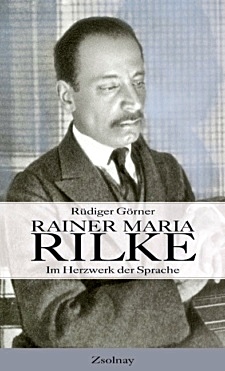 In dieser kompakten Darstellung folgt Rüdiger Görner Rilkes Spuren, verwehrt sich aber den gängigen Einordnungen und Periodisierungen. Es geht ihm vielmehr um den Prozess des Schaffens und um die Geschlossenheit des Werkes.
In dieser kompakten Darstellung folgt Rüdiger Görner Rilkes Spuren, verwehrt sich aber den gängigen Einordnungen und Periodisierungen. Es geht ihm vielmehr um den Prozess des Schaffens und um die Geschlossenheit des Werkes.
Görner zeigt Rilke in seiner Zeit und analysiert die wichtigsten Einflüsse. Auf behutsame Weise werden Leben und Werk miteinander verwoben, und Görner veranschaulicht die Wirkung der Musik, der bildenden Kunst und der Politik.
Rüdiger Görner, geboren 1957 in Rottweil, ist Professor für Neuere Deutsche und vergleichende Literatur an der Queen Mary University of London. Gründer des Ingeborg Bachmann Centre for Austrian Literature und Gründungsdirektor des Centre for Anglo-German Cultural Relations. Träger des Deutschen Sprachpreises, des Reimar Lüstpreises der Alexander von Humboldt-Stiftung und des Verdienstordens der Bundesrepublik Deutschland. Bei Zsolnay erschienen Rainer Maria Rilke. Im Herzwerk der Sprache (2004), Georg Trakl. Dichter im Jahrzehnt der Extreme (2014) und Oskar Kokoschka. Jahrhundertkünstler (2018).
Rüdiger Görner
Rainer Maria Rilke.
Im Herzwerk der Sprache
Buch – Fester Einband
344 Seiten
Deutscher Sprache
Zsolnay / Deuticke
Carl Hanser Verlag, München
ISBN 978-3-552-05302-1
2004
€24,90
# new books
Rainer Maria Rilke
fleursdumal.nl magazine
More in: - Book News, - Book Stories, Archive G-H, Archive Q-R, Art & Literature News, Rilke, Rainer Maria
A series of disruptive, unnerving sounds haunts the fictional writings of Franz Kafka.
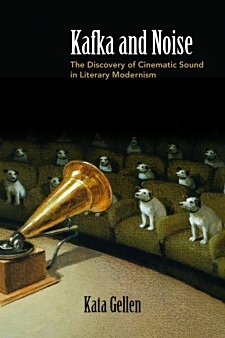 These include the painful squeak in Gregor Samsa’s voice, the indeterminate whistling of Josefine the singer, the relentless noise in “The Burrow,” and telephonic disturbances in The Castle.
These include the painful squeak in Gregor Samsa’s voice, the indeterminate whistling of Josefine the singer, the relentless noise in “The Burrow,” and telephonic disturbances in The Castle.
In Kafka and Noise, Kata Gellen applies concepts and vocabulary from film theory to Kafka’s works in order to account for these unsettling sounds. Rather than try to decode these noises, Gellen explores the complex role they play in Kafka’s larger project.
Kafka and Noise offers a method for pursuing intermedial research in the humanities—namely, via the productive “misapplication” of theoretical tools, which exposes the contours, conditions, and expressive possibilities of the media in question. This book will be of interest to scholars of modernism, literature, cinema, and sound, as well as to anyone wishing to explore how artistic and technological media shape our experience of the world and the possibilities for representing it.
Kata Gellen is an assistant professor in the Department of Germanic Languages and Literature at Duke University.
Kata Gellen (Author)
Kafka and Noise.
The Discovery of Cinematic Sound in Literary Modernism
272 pages
Northwestern University Press
Literary Criticism
Cloth Text – $99.95
ISBN 978-0-8101-3894-0
Paper Text – $34.95
ISBN 978-0-8101-3893-3
Publication Date: January 2019
# new books
The Discovery of Cinematic Sound in Literary Modernism
fleursdumal.nl magazine
More in: # Music Archive, #Archive A-Z Sound Poetry, #Archive Concrete & Visual Poetry, *Concrete + Visual Poetry K-O, - Book News, - Bookstores, Archive G-H, Archive K-L, Art & Literature News, Franz Kafka, Kafka, Franz, Kafka, Franz, Modernisme
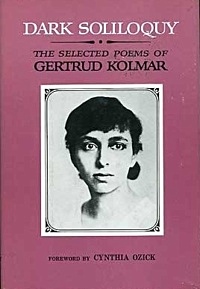
Sehnsucht
Ich denke dein,
Immer denke ich dein.
Menschen sprachen zu mir, doch ich achtet es nicht.
Ich sah in des Abendhimmels tiefes Chinesenblau, daran
der Mond als runde gelbe Laterne hing,
Und sann einem anderen Monde, dem deinen, nach,
Der dir glänzender Schild eines ionischen Helden vielleicht
oder sanfter goldener Diskus eines erhabenen Werfers wurde.
Im Winkel der Stube saß ich dann ohne Lampenlicht,
tagmüde, verhüllt, ganz dem Dunkel gegeben,
Die Hände lagen im Schoß, Augen fielen mir zu.
Doch auf die innere Wand der Lider war klein und unscharf
dein Bild gemalt.
Unter Gestirnen schritt ich an stilleren Gärten, den Schatten-
rissen der Kiefern, flacher, verstummter Häuser,
steiler Giebel vorbei
Unter weichem düsteren Mantel, den nur zuweilen
Radknirschen griff, Eulenschrei zerrte,
Und redete schweigend von dir, Geliebter, dem lautlosen,
dem weißen mandeläugigen Hunde, den ich geleitete.
Verschlungene in ewigen Meeren ertrunkene Nächte!
Da meine Hand in den Flaum deiner Brust sich bettete
zum Schlummer,
Da unsere Atemzüge sich mischten zu köstlichem Wein,
den wir in Rosenquarzschale darboten unserer Herrin,
der Liebe,
Da in Gebirgen der Finsternis die Druse uns wuchs und
reifte, Hohlfrucht aus Bergkristallen und fliedernen
Amethysten,
Da die Zärtlichkeit unsere Arme Feuertulpen
porzellanblaue Hyazinthen aus welligen, weiten, ins
Morgersgraun reichenden Schollen rief,
Da, auf gewundenem Stengel spielend, die halberschlossene
Knospe des Mohns wie Natter blutrot über uns züngelte,
Des Ostens Balsam- und Zimmetbäume mit zitterndem
Laube um unsere Lager sich hoben
Und purpurne Weberfinken unserer Munde Hauch in
schwebende Nester verflochten. –
Wann wieder werden wir in des Geheimnisses Wälder fliehn,
die, undurchdringlich, Hinde und Hirsch vor dem
Verfolger schützen?
Wann wieder wird mein Leib deinen hungrig bittenden
Händen weißes duftendes Brot, wird meines Mundes
gespaltene Frucht deinen dürstenden Lippen süß sein?
Wann wieder werden wir uns begegnen?
Innige Worte gleich Samen von Wurzkraut und Sommer-
blumen verstreun
Und beglückter verstummen, um nur die singenden
Quellen unseres Blutes zu hören?
(Fühlst du, Geliebter, mein kleines horchendes Ohr, ruhend
an deinem Herzen?)
Wann wieder werden im Nachen wir gleiten unter zitronfarbnem
Segel,
Von silbrig beschäumter, tanzender Woge selig gewiegt,
Vorüber an Palmen, die grüner Turban schmückt wie den
Sproß des Propheten,
Den Saumriffn ferner Inseln entgegen, Korallenbänken,
an denen du scheitern willst?
Wann wieder, Geliebter . . . wann wieder . . ? . .
Nun sintert mein Weg
Durch Ödnis. Dorn ritzt den Fuß.
Bäche, frische, erquickende Wasser, murmeln; aber ich finde
sie nicht.
Datteln schwellen, die ich nicht koste. Meine verschmachtende
Seele
Flüstert ein Wort nur, dies einzige:
»Komm. . .«
O komm …
Gertrud Kolmar
(1894-1943)
Gedicht: Sehnsucht
fleursdumal.nl magazine
More in: Archive K-L, Archive K-L, Kolmar, Gertrud
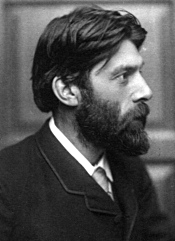
To Joseph Joachim
Belov’d of all to whom that Muse is dear
Who hid her spirit of rapture from the Greek,
Whereby our art excelleth the antique,
Perfecting formal beauty to the ear;
Thou that hast been in England many a year
The interpreter who left us nought to seek,
Making Beethoven’s inmost passion speak,
Bringing the soul of great Sebastian near.
Their music liveth ever, and ’tis just
That thou, good Joachim, so high thy skill,
Rank (as thou shalt upon the heavenly hill)
Laurel’d with them, for thy ennobling trust
Remember’d when thy loving hand is still
And every ear that heard thee stopt with dust.
Robert Bridges
(1844-1930)
To Joseph Joachim
fleursdumal.nl magazine
More in: *War Poetry Archive, Archive A-B, Bridges, Robert
Thank you for reading Fleurs du Mal - magazine for art & literature